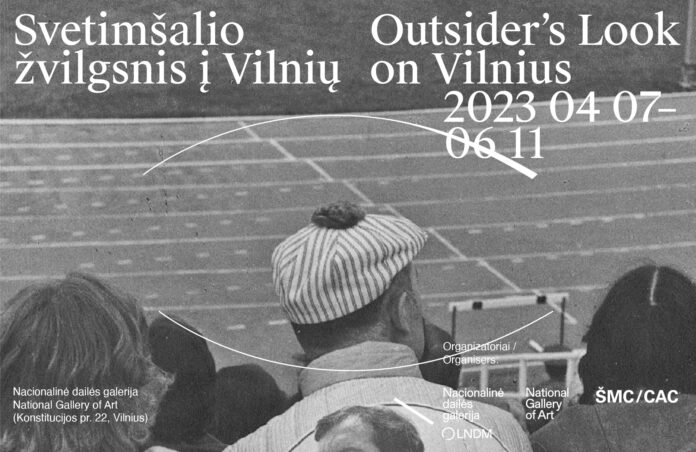
As the capital city of Lithuania celebrates its 700th anniversary, the National Gallery of Art and the Contemporary Art Centre launches an exhibition titled Outsider’s Look on Vilnius. The exhibition, which will be held in the main hall of the NGA, invites you to look at how foreign artists — from war tourists to invited guests — observed and interpreted Vilnius against the background of the great geopolitical turning points of the 20th century.
The inspiration for the exhibition came from the letters of Grand Duke Gediminas, in which he invited foreigners to come to Vilnius, and from a curiosity about how visiting artists viewed and depicted Vilnius during the last century, said Lolita Jablonskienė, head of the NGA.
The narrative of the exhibition is based on three significant historical turning points: the First World War, the Soviet era, and the first two decades of Lithuania’s independence, which started a new chapter of the city’s life. Throughout these times, artists who came to Vilnius mainly relied on portrait and landscape genres as they tried to capture the image of a strange, somewhat exotic, and constantly changing city. The exhibition presents works created by foreign artists who worked in Vilnius during the 20th and early 21st centuries, specifically those pieces dedicated to Vilnius. In addition, the exhibition also shares the stories of the artworks’ origin and existence, providing a perspective on Vilnius as the Other that never ceases to intrigue and offer new narratives.
Spanning a period of almost 100 years, the content of the exhibition was formed and the works selected by four experts: Belarusian writer, photographer, curator, and resident of Vilnius Andrei Antonau; curator and head of CAC Kęstutis Kuizinas; art historian Dr. Laima Laučkaitė; and Vilnius-based Ukrainian artist and photography theorist Valentyn Odnoviun. The exhibition was organized in cooperation with art institutions, private archives, and contemporary artists in Ukraine, Germany, Belgium, and Lithuania. The exhibition features many works created in Vilnius that have never before been presented in Lithuania, and some of the contemporary art projects were specifically recreated for this occasion.
Outsider’s Look on Vilnius starts with a look at the First World War, when German artists began to record the architecture and daily life of Vilnius. In the eyes of those artists — war tourists — Vilnius seemed like an exotic discovery, an impoverished yet beautiful city, distinguished by its strange inhabitants worthy of a closer look. The legacy of photographers Konstantin Kostiuk, Yuri Rupin, and members of the Province Group who visited Vilnius during the Soviet era reveals a different, though no less unexpected, view of the city. The exhibition concludes with contemporary art works created in the transitional period, from 1990 until Lithuania’s gradual integration into the European Union. In the photographs, videos, and performances of the artists invited to Vilnius by the CAC — an art institution born in independent Lithuania — the city is explored not only through an outsider’s gaze, but also through the filter of artistic research.
The context of the exhibition is provided by the UNVIL project (Edwin Zwakman, Netherlands), which is recreated especially for the occasion. In 2004, Zwakman painted Vilnius trolleybuses and buses in United Nations colours, complete with UN logo. For three months, the buses drove their usual routes, while the artist filmed them from a taxi or a helicopter. According to one of the exhibition curators, Kęstutis Kuizinas, at that time, Lithuania, like all of Europe, was living in a hopeful mood, while the changing geopolitical situation of today forces us to ask ourselves again – why here and why now? According to the artist, who is returned to Vilnius for the opening of the exhibition, this project is also relevant because it tells the history of Vilnius itself, and encourages us to think about who we were and what we have since become.
The exhibition Outsider’s Look on Vilnius at the National Gallery of Art will be open until 11th of June.
Participating artists: Paweł Althamer, Pierre Bismuth & Jonathan Monk, Daniel Bozhkov, Walter Buhe, artist collective Chim↑Pom, Alfred Holler, Konstantin Kostiuk, David Mabb, Flávia Müller Medeiros, Ivan Medvedev, The Province Group, Yuri Rupin, Barbara Visser, Mirjam Wirz, Vita Zaman, Magnus Zeller, Edwin Zwakman.



























